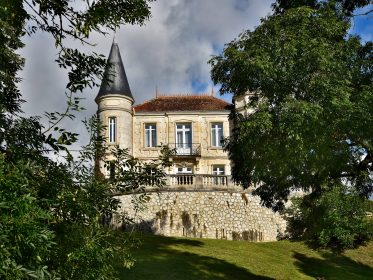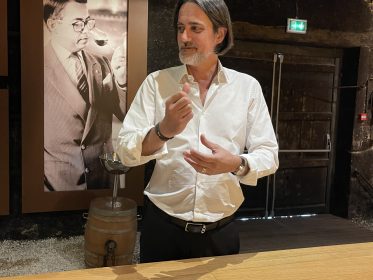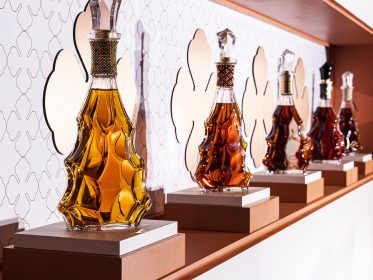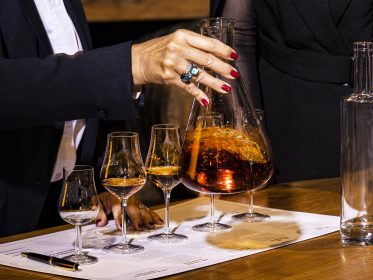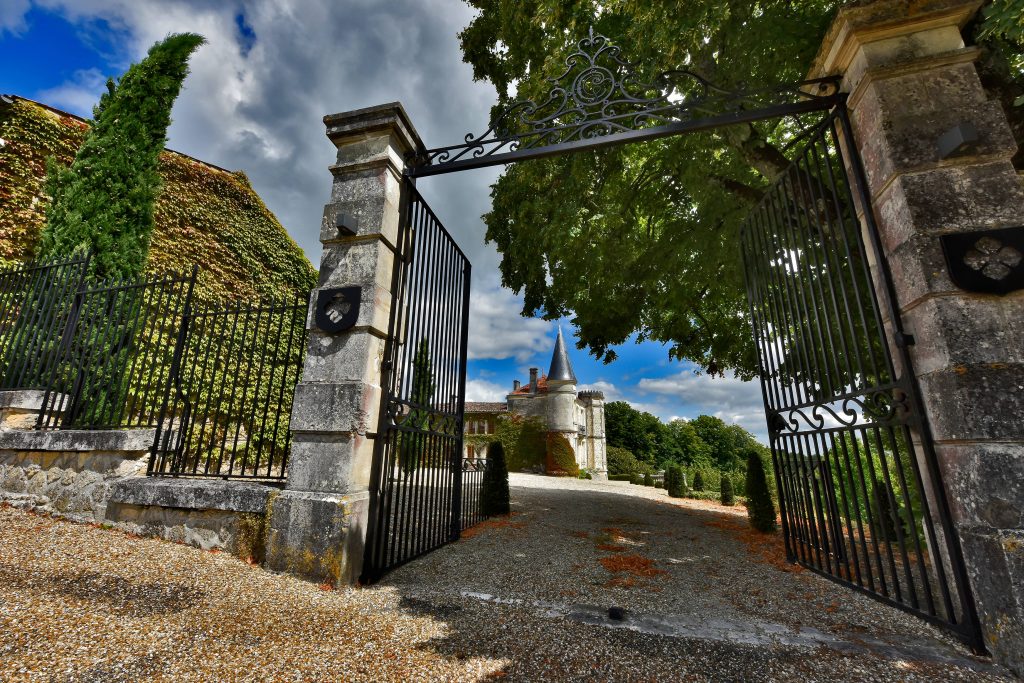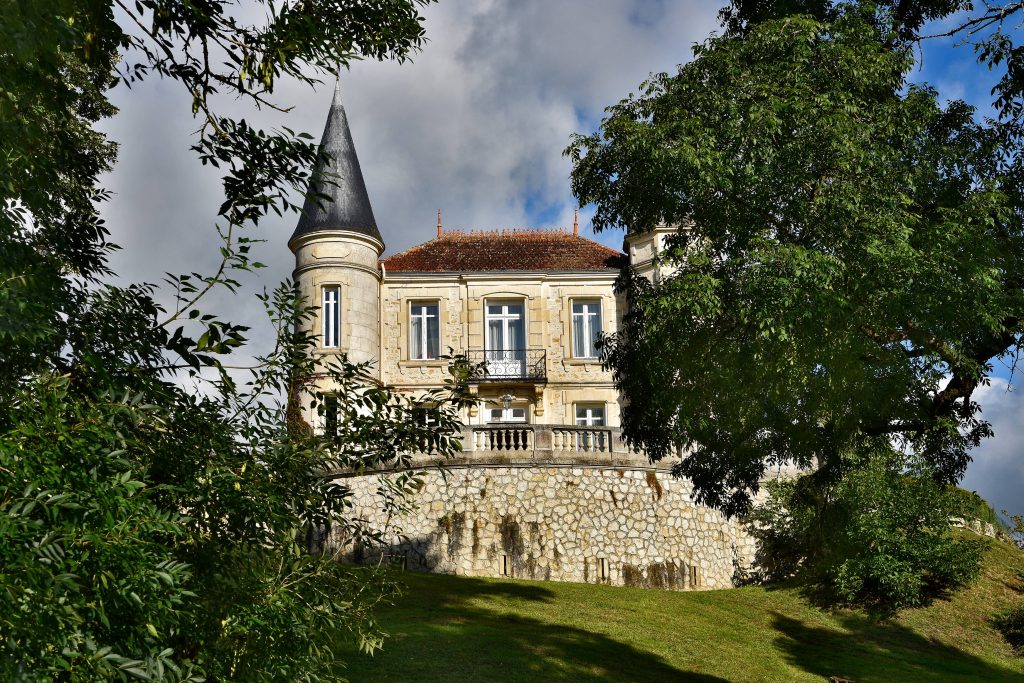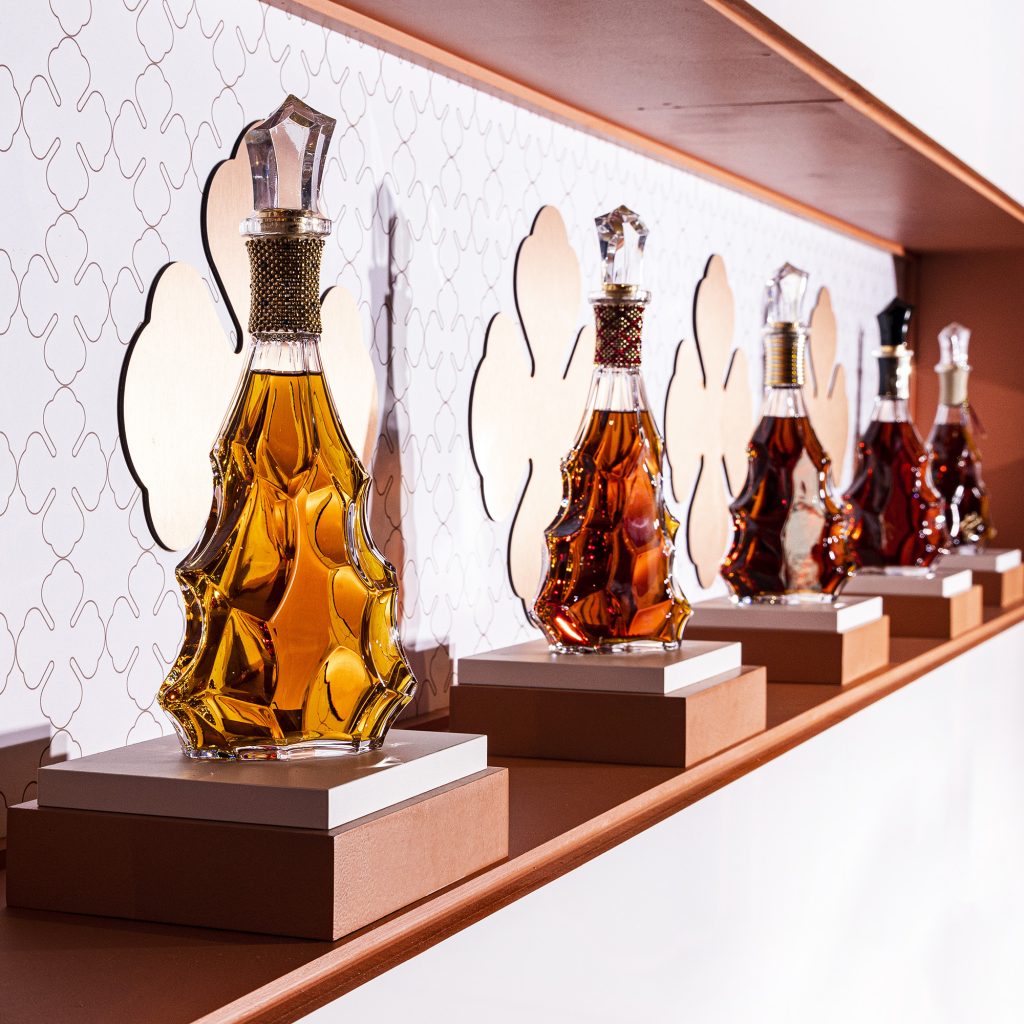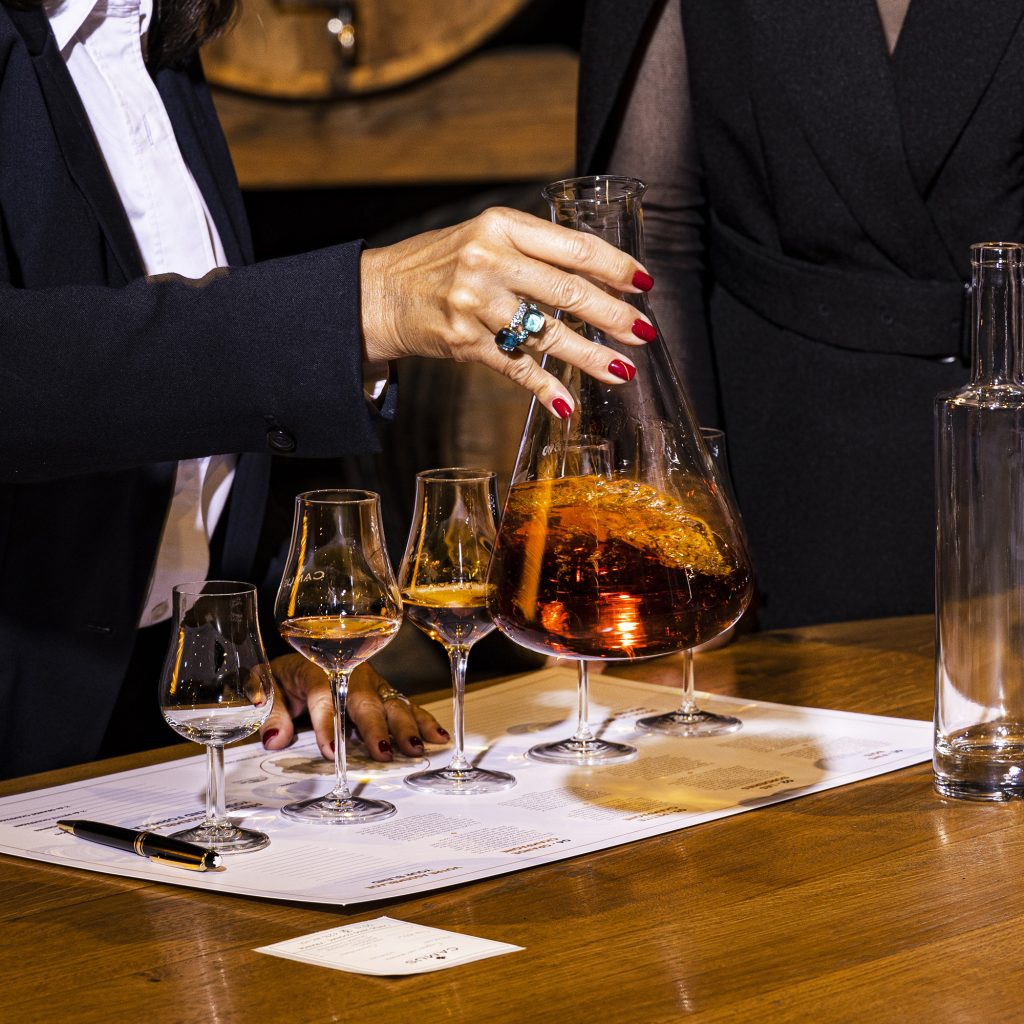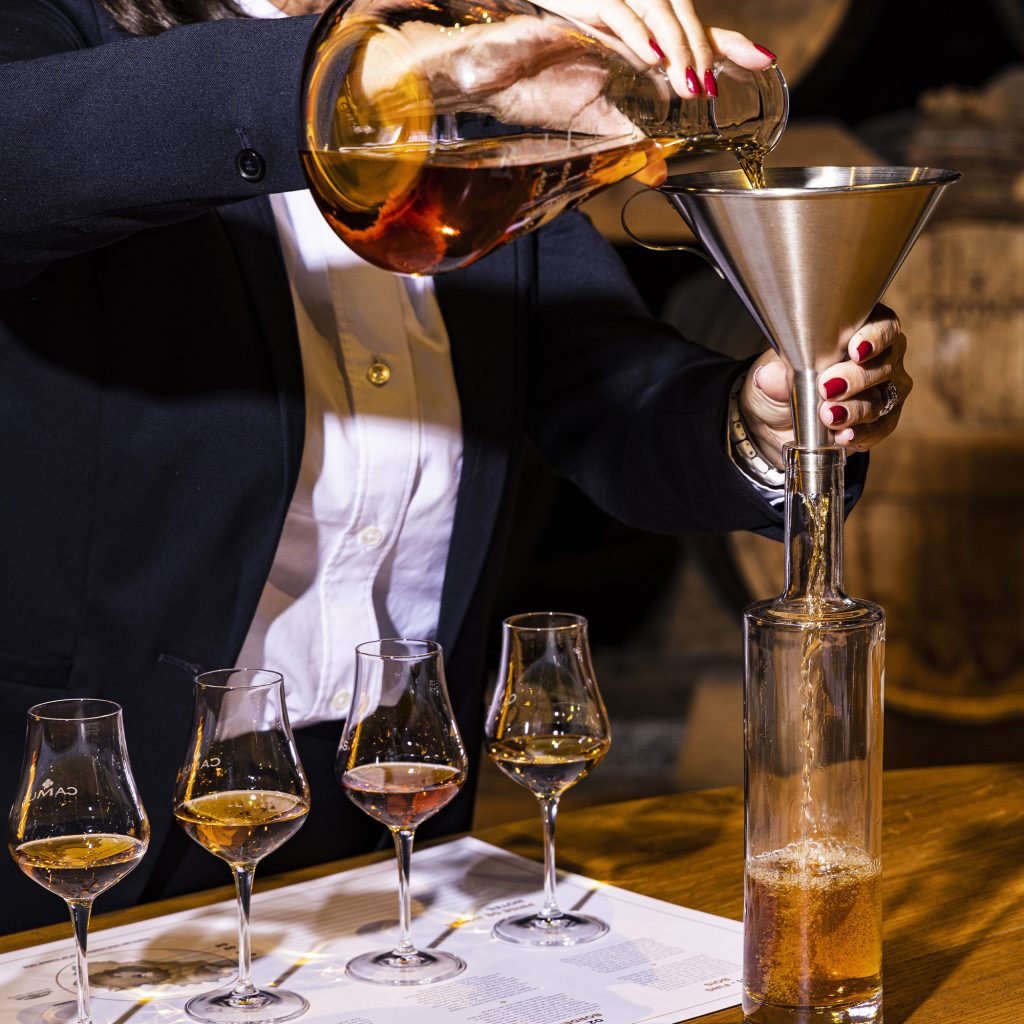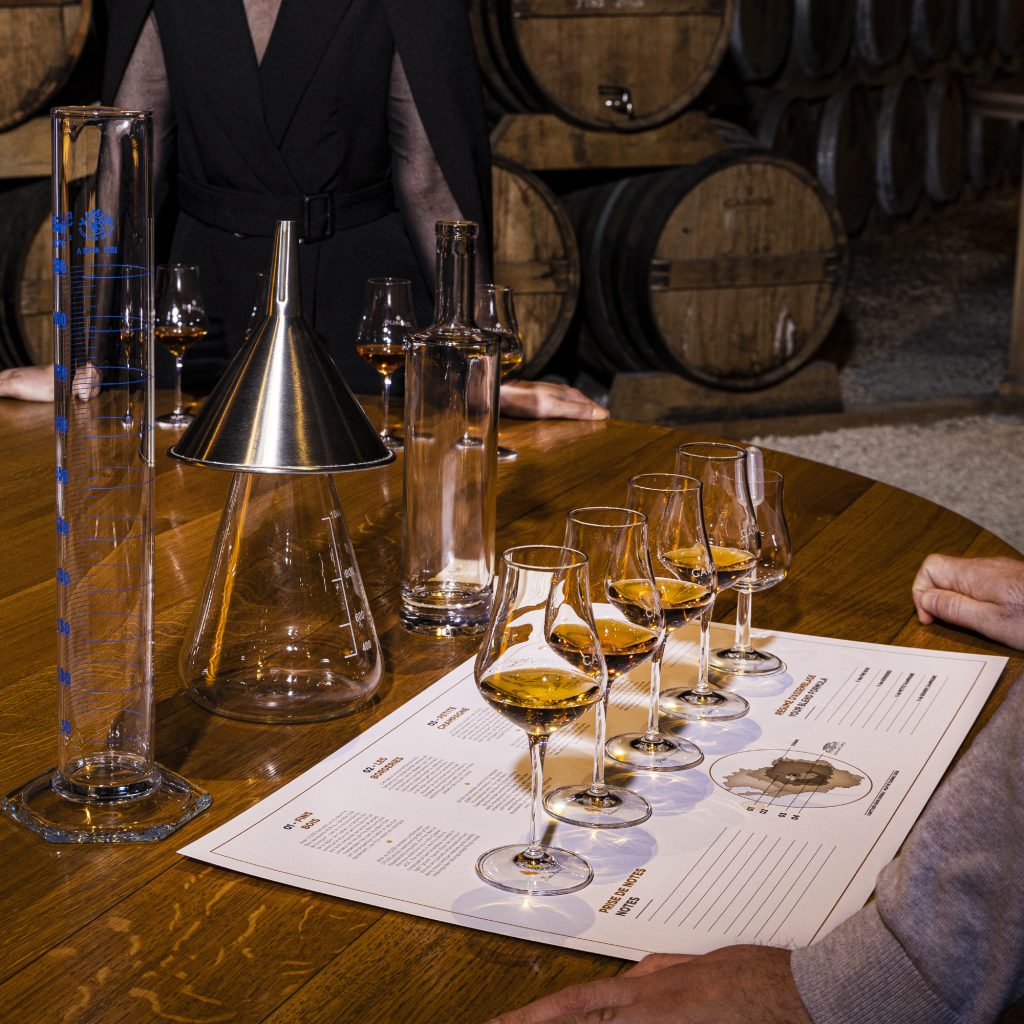A Legacy in Every Drop: An In-Depth Conversation with Cyril Camus
Author: Kateryna Yushchenko
One crisp morning in the heart of the Cognac region, I walk through sun-dappled vineyards towards a stately château. This is the home of Camus, one of the world’s most prestigious Cognac houses, and I’m here to meet Cyril Camus, the 5th generation owner. As we settle into comfortable armchairs in his wood-panelled study, surrounded by family portraits and vintage bottles, Cyril begins to share the rich tapestry of history, innovation, and passion that defines Camus.
Kateryna Yushchenko: Cyril, you’re the 5th generation to lead Camus. What does that legacy mean to you personally?
Cyril Camus: It’s both a tremendous honour and a weighty responsibility. Every day, I’m acutely aware that I’m not just running a business but also the custodian of my family’s legacy. The portraits you see around us (he gestures to the walls) – these are my ancestors who built this company from the ground up. Their spirit and passion are all distilled into every drop of Cognac we produce.
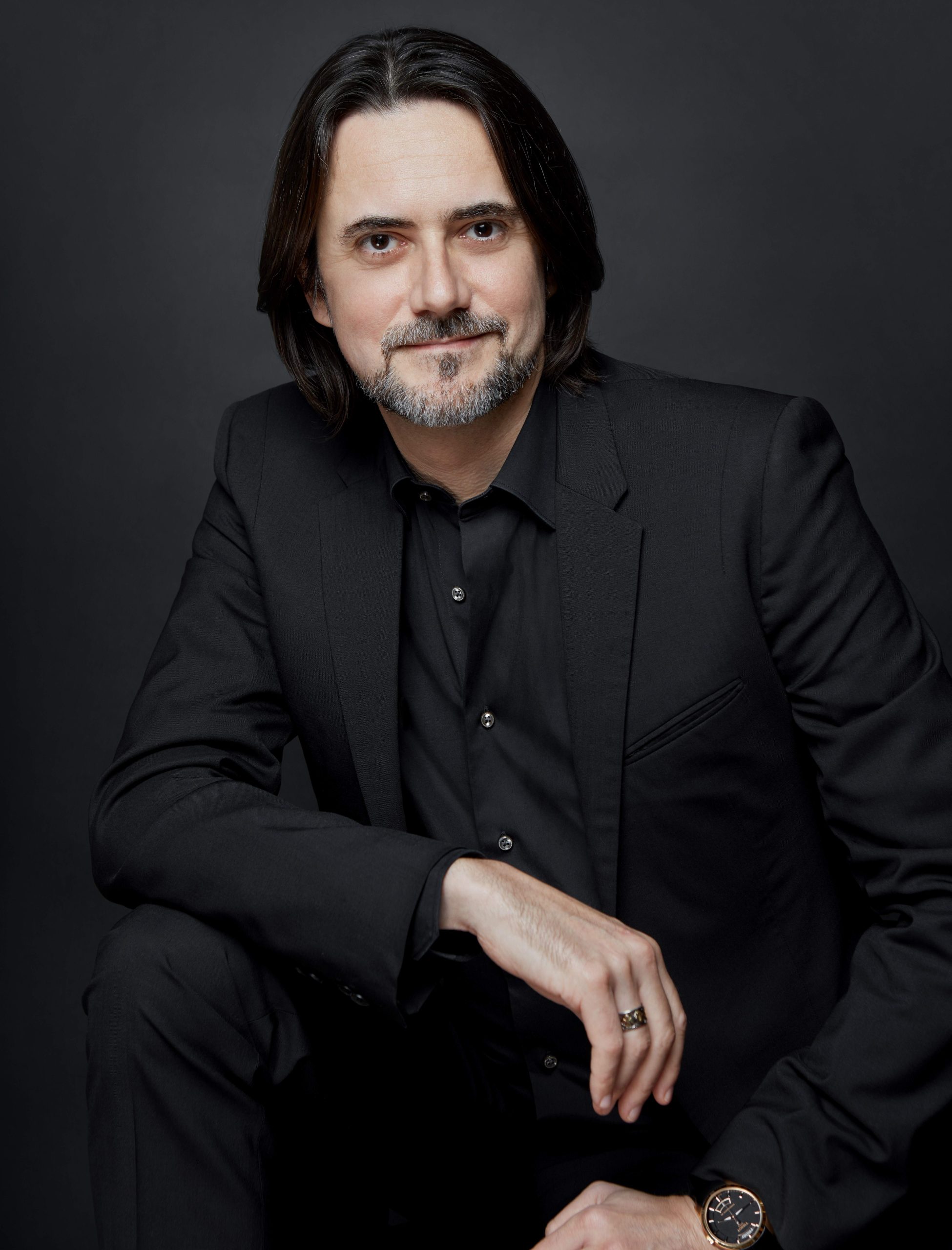
K.Y.: How has Camus remained family-owned for over 160 years when so many others have been sold?
C.C.: It hasn’t always been easy, I can tell you that. We’ve had a unique succession system where, for every generation, one of the children bought out the others. It’s allowed us to remain independent, with the family member running the company also owning 100% of the shares. But more than that, it’s about instilling a sense of purpose and responsibility in each generation. We’re not just inheritors; we’re entrepreneurs.
This approach has allowed us to avoid many of the conflicts that can arise when ownership is divided among multiple family members. In France, inheritance rules are obvious and strict. You have to give equally to all your children. If you have three kids, you’d typically end up with three shareholders in the next generation. But in our case, one child would buy out the others, consolidating ownership. This means that for five generations now, the person running the company has also owned 100% of it.
K.Y.: Can you elaborate on that sense of purpose? How has it evolved over the generations?
C.C.: Absolutely. For my grandfather, it was about making the best Cognac in the world for those who appreciate the finer things in life. My generation has evolved to “bring about beauty and refinement, to create emotion and pleasure.” It’s not just about the product anymore; it’s about the entire experience.
I grew up in an environment where we had people from different parts of the world at our dinner table every night. By the time Cognac was served, there was this incredible atmosphere of warmth and connection. That’s what we want to create for our customers.
This sense of purpose is what animates and motivates both the family and everyone in the company. It’s where you have a match between the community – all the employees, the distribution partners, and so on. This alignment between them and the family allows the company to stay the course in more difficult times but also to innovate when needed.
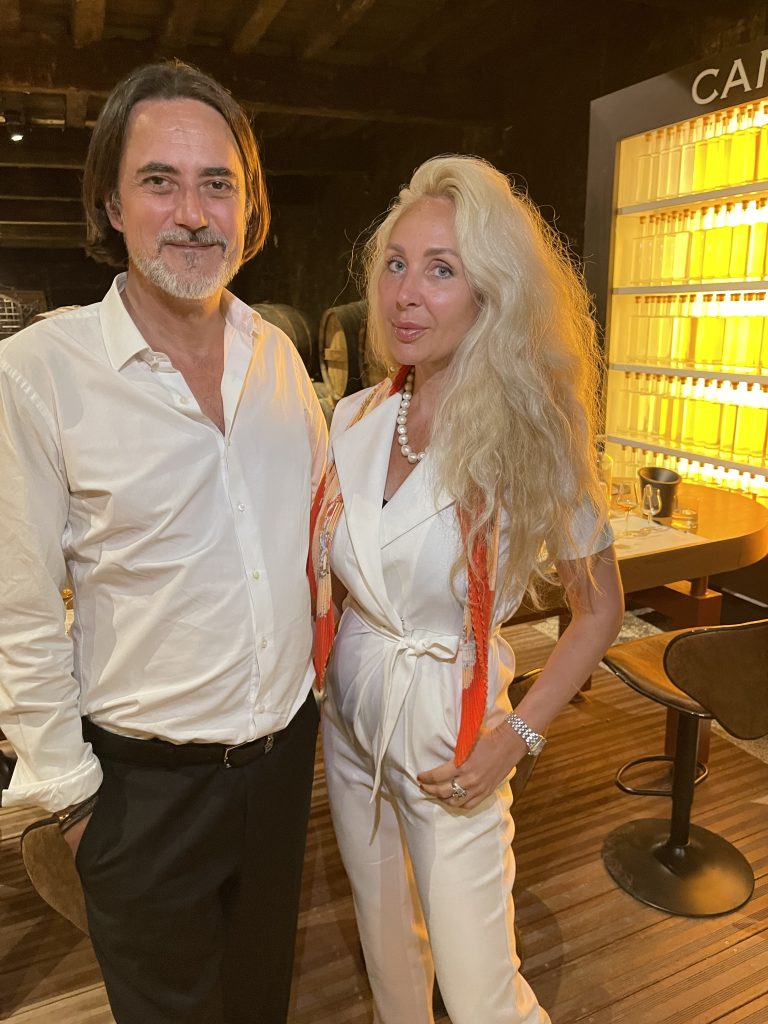
K.Y.: That’s beautiful. How do you balance this rich tradition with the need to innovate?
C.C.: It’s a constant dance, I’ll tell you. The Cognac industry is heavily regulated, which can be frustrating at times. But we’ve found ways to innovate within these constraints. (He stands up and walks to a shelf, picking up a uniquely shaped bottle) Take this, for example. We innovated on the packaging, creating a stopper that’s part crystal, part cork. Everyone in the industry said we were crazy, that cork wasn’t ‘premium’ enough to be used with crystal. But we realised that the stopper is in the bottle 99% of the time, just sitting there looking good. So, we created something that looks beautiful and solves the problem of leakage. It’s been a great success.
But innovation isn’t just about packaging. We’re constantly looking at ways to improve our production methods, too. We call it the “science of traditions.” We’ve revisited every step of the production process, looking at how things used to be done and analysing if there was value in those old methods that we’ve lost through modernisation. Sometimes, we find ways to reproduce those beneficial effects using modern, economically viable methods.
K.Y.: Camus has survived through significant market changes. Can you discuss some of the biggest shifts you’ve seen and how you’ve adapted?
C.C.: One of the most significant shifts in my father’s time was the emergence of Japan as a major market. It went from nowhere in the 70s to being our largest Cognac market in value by the late 80s. Now, it’s about 10% of what it used to be. More recently, we’ve seen the rise of China and the U.S. as key markets.
These shifts require us to be incredibly adaptable, not just in terms of marketing but also in product development. For instance, the Japanese market really drove innovation in packaging and premium presentations. That’s where Cognac started to break out regarding bottle shapes and decanters.
Another significant change has been in consumer demographics. Today, Cognac consumers are much younger than they used to be. This presents its own challenges, as I’m now older than many of our consumers. In a non-family business, you might simply change the CEO to someone from the consumers’ generation. In a family business, we have to find other ways to stay relevant and connect with younger consumers.
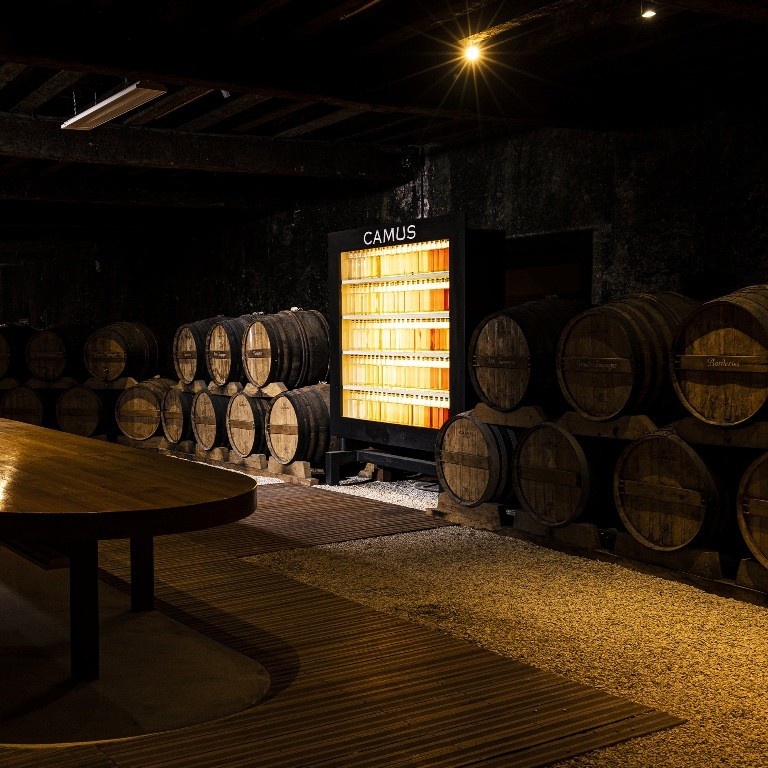
K.Y.: How does Camus differentiate itself from larger competitors in the Cognac industry?
C.C.: It’s essential to understand that Cognac is a tiny category in the spirits world with an outsized reputation. Our challenge is to maintain relevance and visibility in a crowded market. Unlike larger, corporate-owned brands, we have the advantage of being more agile and willing to take risks. We’re not bound by quarterly reports to shareholders, which allows us to make decisions with a longer-term view.
However, this can also be a double-edged sword. Larger competitors often have more resources for marketing and distribution. They can sometimes lock up access to markets or dominate the share of voice. We counter this by focusing on innovation, quality, and creating unique customer experiences.
One of our key differentiators is our focus on aromatic intensity. We’ve spent the last 25 years changing every step of our production process to achieve this distinctiveness. It’s taken a long time, but it’s given us a unique profile in the market.
K.Y.: What do you see as the biggest challenges facing Camus and the Cognac industry today?
C.C.: We’re grappling with several challenges. First, there’s the rise of other premium spirits categories. Single malt whisky, for instance, has been a significant competitor over the past 20 years. They’ve adopted some of the storytelling techniques Cognac pioneered and have fewer production limitations.
Then, there’s the challenge of staying relevant to younger consumers. The natural market share of Cognac in any given country is relatively small, usually less than 1%. We need to continually work to maintain our visibility and appeal.
Another major challenge is sustainability. We’re looking at ways to reduce our energy consumption, particularly in the distillation process. The current method of distilling with a naked flame is energy-intensive, and we’re eager to adopt more efficient technologies. However, regulatory hurdles mean this process of change is slow. It could take up to eight years before we can implement more sustainable distillation methods, even though we know they work and produce excellent Cognac.
Lastly, there’s the challenge of maintaining our ‘share of voice’ in the market. Cognac has this aura that’s completely out of proportion with the actual size of the industry. We must ensure that people continue to know about and aspire to drink Cognac, even if they don’t do so daily.
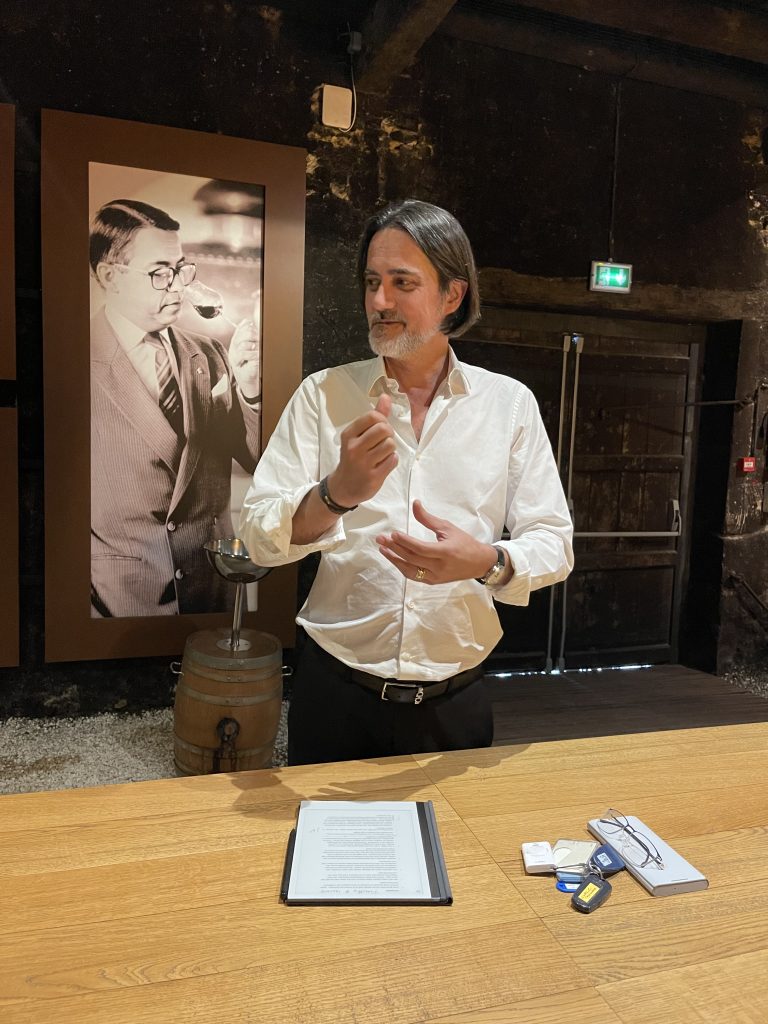
K.Y.: How does being a family business impact your approach to these challenges?
C.C.: Being a family business gives us both advantages and disadvantages. On the plus side, we can take a longer-term view. We’re not as pressured by short-term profit demands, which allows us to invest in quality and innovation that might not pay off immediately.
Family businesses are often more value-driven, too. We’ve always had a strong sense of social and environmental responsibility, not because it’s trendy, but because we live where we work. We want to preserve and improve our community and environment.
However, we also face limitations. We typically have less capital to deploy than our corporate competitors. We tend to be more conservative with leverage and risk-taking, which can sometimes slow our growth or limit our ability to seize opportunities.
Another aspect is that in a family business, key decisions often involve family dynamics. This can lead to more stable, values-driven decision-making, but it can also sometimes slow us down, especially when facing critical decisions in times of crisis.
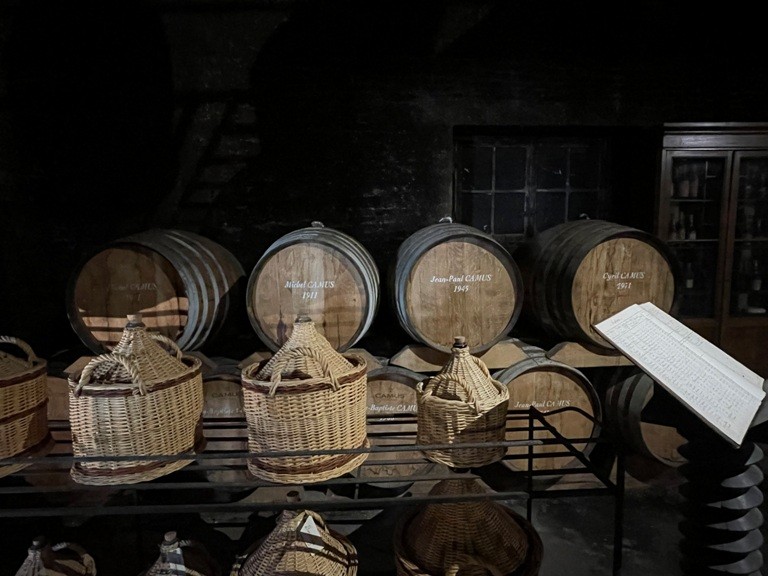
K.Y.: Speaking of innovation, if you could change one thing about Cognac regulations, what would it be?
C.C.: Oh, that’s easy. I would love to be able to do the finishing, similar to what’s done in the whisky industry. (He leans in as if sharing a secret) We’ve had some experiments that have produced incredible results, but we can’t bring them to market due to current regulations. It’s a shame because I think it would allow us to bring more diverse taste experiences to our consumers.
I believe the Cognac industry needs more diversity in taste experiences. We need to create more distinctive profiles while still clearly identifying as Cognac. Finishing could be a quick way to bring new taste experiences that would work well for consumers. It could help us compete better with other spirit categories that have more freedom to innovate in this way.
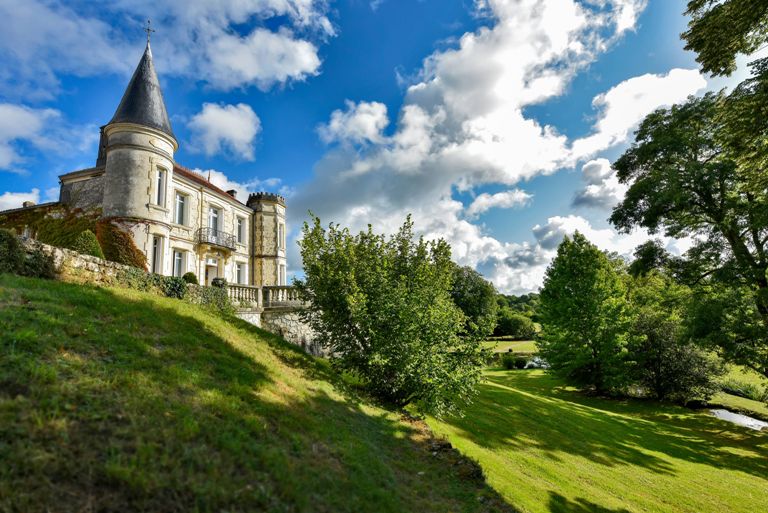
K.Y.: How do you prepare the next generation to take over such a storied business?
C.C.: It’s a delicate balance. We want to provide them with the knowledge and skills they’ll need and allow them the freedom to find their own path. We focus a lot on education – not just about the business, but about family dynamics and values.
My kids are still young, but I can already see their different personalities emerging. One is very finance-oriented, like my grandfather. The other is more into project management and marketing, more like me. Whatever path they choose, the most important thing is that they understand the responsibility that comes with our name.
We’ve built our legacy around four pillars: entrepreneurship, sense of purpose, freedom to innovate, and education. We try to instil these values in the next generation, along with an understanding of how to manage family dynamics in a business context. This isn’t just for those who might run the company but for all family members. It’s crucial for maintaining family harmony and business success.
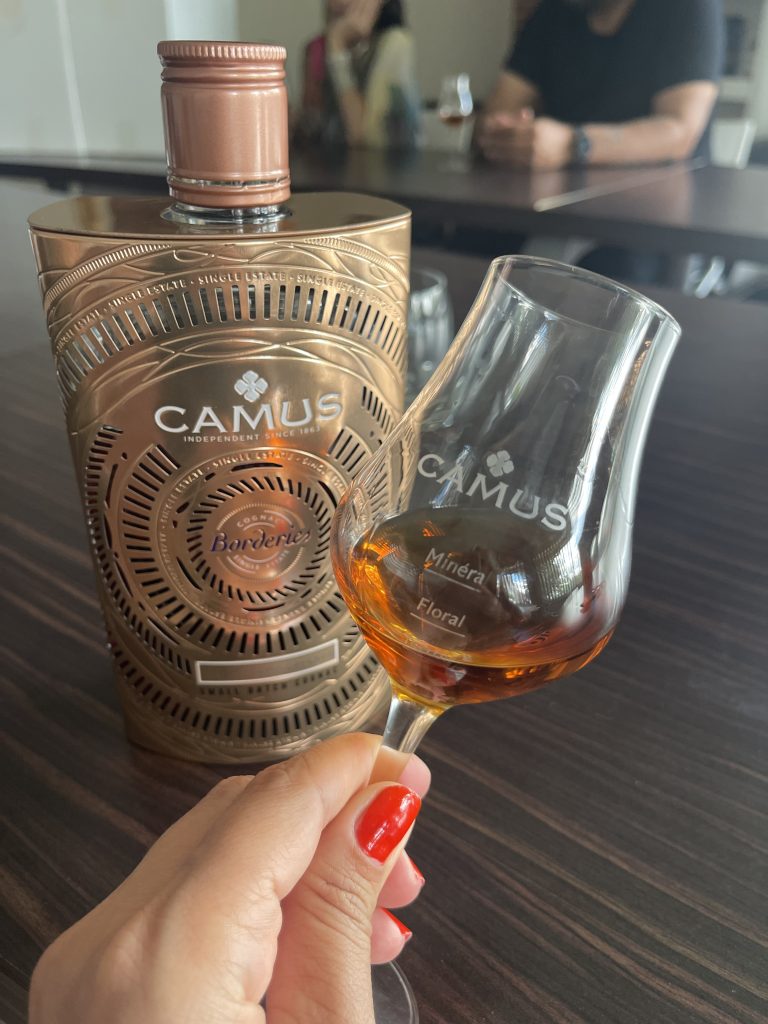
K.Y.: Looking ahead, what’s your vision for Camus in the next decade?
C.C.: Our goal is to continue pushing the boundaries of what Cognac can be while respecting its rich heritage. We’re investing heavily in sustainable practices, not just because it’s the right thing to do but because we believe it will enhance the quality of our product.
We’re also focusing on creating more diverse taste experiences for our consumers. If regulations allow, we’d love to explore finishing techniques to bring new flavour profiles to Cognac.
Digitally, we’re looking at ways to enhance the consumer experience, perhaps through augmented reality or other technologies that can bring the story of Cognac to life.
We’re also constantly working on improving our production methods. Even though Cognac has been made the same way for centuries, we believe there’s always room for improvement. We’re using modern science to understand and enhance traditional methods.
Ultimately, our vision is to ensure that Camus remains at the forefront of the Cognac industry, known for its innovation, quality, and the unique experiences we provide. We want to pass on to the next generation a company that’s surviving, thriving, and shaping the future of this industry we love.
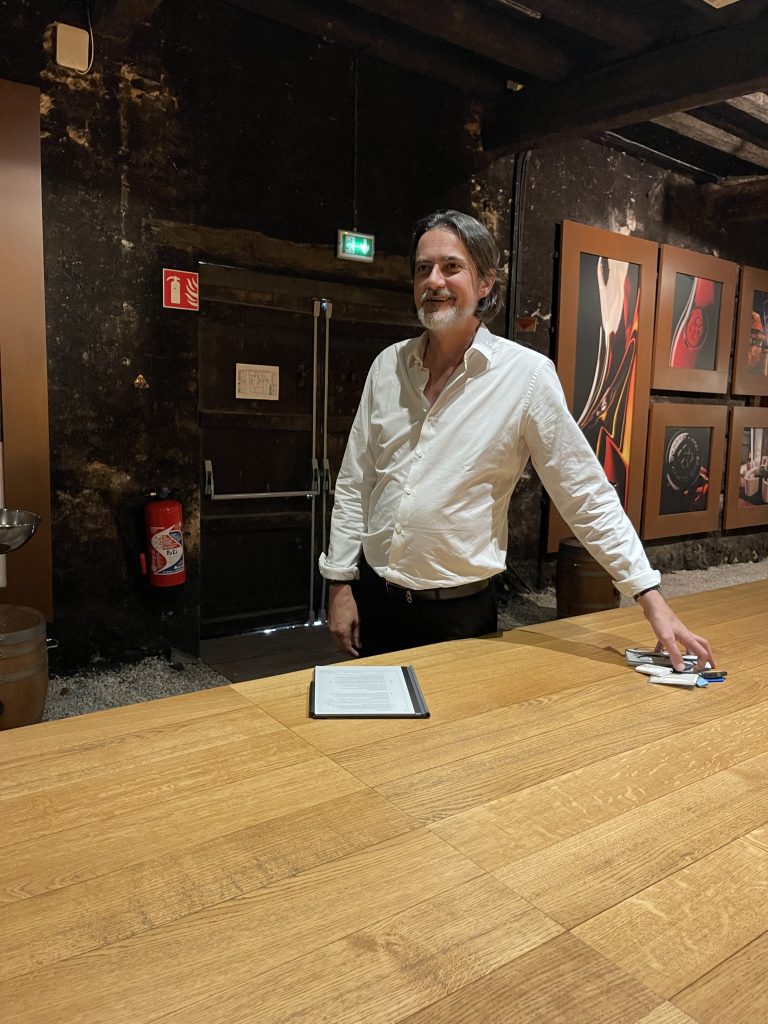
K.Y.: Finally, I have to ask – what’s your personal favourite Camus Cognac?
C.C.: That’s like asking me to choose between my children! But if I must… (He stands and walks to a cabinet, pulling out a bottle) This is our Camus XO Borderies. It’s fantastic as an after-dinner drink. But for an all-around favourite, I’d choose our Camus Special Dry. (He pours a small measure into two glasses, handing one to me) It’s versatile and works well in various settings. It represents the perfect Cognac moment – you’re in the right place, with great people and a beautiful landscape. You don’t necessarily need a bar nearby. Just this, and good company. Santé! (We clink glasses)
As our conversation concludes and we sip the golden liquid, it’s clear that Cyril Camus is navigating a complex landscape of tradition, innovation, and market pressures. His analytical approach, combined with a deep respect for his family’s legacy, positions Camus uniquely in the Cognac industry. While challenges abound, from sustainability concerns to changing consumer preferences, Camus seems poised to meet them with time-honoured wisdom and forward-thinking strategies.
The passion with which Cyril speaks about his family’s legacy, the depth of his knowledge about the industry, and his clear vision for the future are truly inspiring. It’s evident that for the Camus family, Cognac is not just a product but a way of life – a legacy passed down through generations, each adding its chapter to the story.
In an age of rapid change and corporate consolidation, there’s something profoundly reassuring about knowing that some things – like the passion and craftsmanship behind a fine Cognac – remain constant, passed down from one generation to the next.
Stay connected with Wine Travel Awards:
